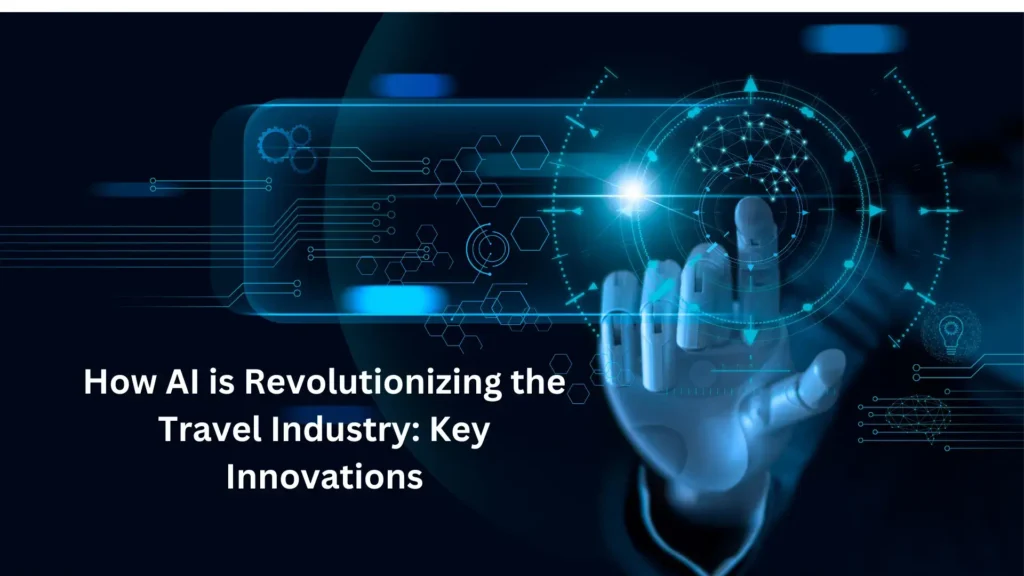The travel industry has always been at the forefront of technological advancements, constantly adapting to meet the ever-changing needs of globetrotters. In recent years, artificial intelligence (AI) has emerged as a game-changer, transforming the way we plan, book, and experience travel. This blog post explores the key innovations that AI brings to the travel sector, highlighting how it’s reshaping the industry landscape and enhancing the traveler’s journey.
1. Personalized Travel Recommendations
One of the most significant impacts of trip AI in the travel industry is the ability to provide highly personalized recommendations. AI algorithms analyze vast amounts of data, including past travel history, preferences, and online behavior, to suggest tailored itineraries, accommodations, and activities. This level of personalization goes beyond simple demographic segmentation, offering truly unique experiences for each traveler.
For instance, AI-powered platforms can recommend off-the-beaten-path destinations based on a user’s interests, suggest restaurants that cater to specific dietary requirements, or propose activities that align with a traveler’s past experiences. This not only enhances the travel experience but also helps travelers discover new and exciting opportunities they might have otherwise missed.
2. Intelligent Chatbots and Virtual Assistants
AI-driven chatbots and virtual assistants have revolutionized customer service in the travel industry. These intelligent systems can handle a wide range of queries, from flight bookings and hotel reservations to local recommendations and travel tips. Available 24/7, they provide instant responses to travelers’ questions, significantly reducing wait times and improving overall customer satisfaction.
Moreover, these AI assistants can learn from each interaction, continuously improving their ability to understand and respond to complex queries. Some advanced systems even incorporate natural language processing, allowing them to communicate with travelers in a more human-like manner, making the interaction feel more personal and engaging.
3. Predictive Analytics for Pricing and Demand
AI’s capability to process and analyze large datasets has transformed how travel companies approach pricing and demand forecasting. By considering factors such as historical booking data, weather patterns, local events, and even social media trends, AI algorithms can predict demand fluctuations with remarkable accuracy. This allows airlines, hotels, and other travel service providers to optimize their pricing strategies in real-time, maximizing revenue while offering competitive rates to travelers.
Furthermore, these predictive models help companies manage their resources more efficiently. For example, airlines can adjust their flight schedules based on predicted demand, while hotels can optimize their staffing levels to ensure they provide excellent service during peak periods without overstaffing during quieter times.
4. Enhanced Travel Planning
The concept of travel AI has gained significant traction in recent years, offering travelers a comprehensive tool for planning their journeys. These AI-powered platforms go beyond simple itinerary creation, considering factors such as budget constraints, travel preferences, and even real-time data on crowd levels at popular attractions. By analyzing millions of data points, AI can create optimized travel plans that balance sightseeing, relaxation, and unique experiences, all while considering practical aspects like transportation and meal times.
5. Improved Travel Safety and Security
AI is playing a crucial role in enhancing travel safety and security. From facial recognition systems at airports to AI-powered surveillance cameras in tourist hotspots, these technologies are helping to create safer environments for travelers. AI algorithms can detect suspicious behavior, identify potential security threats, and alert authorities in real-time.
Additionally, AI-driven systems can monitor global events, weather patterns, and health risks, providing travelers with up-to-date information and alerts about their destinations. This proactive approach to safety allows travelers to make informed decisions and adjust their plans if necessary, ensuring a smoother and more secure travel experience.
6. Seamless Language Translation
Language barriers have long been a challenge for international travelers, but AI is breaking down these obstacles. Advanced machine learning algorithms power real-time translation apps and devices, allowing travelers to communicate effortlessly with locals, read signs and menus, and navigate unfamiliar environments with ease.
These AI-powered translation tools are continuously improving, capturing nuances in language and even adapting to regional dialects. This not only enhances the travel experience but also promotes cultural exchange and understanding, allowing travelers to immerse themselves more fully in their destinations.
7. Sustainable Travel Solutions
As sustainability becomes an increasingly important consideration for travelers, AI is stepping up to help make travel more environmentally friendly. AI algorithms can calculate the carbon footprint of different travel options, suggesting eco-friendly alternatives for transportation, accommodation, and activities. These systems can also optimize routes to reduce fuel consumption and emissions, contributing to more sustainable travel practices.
Furthermore, AI can help manage tourist flows in popular destinations, preventing overcrowding and reducing the environmental impact of mass tourism. By analyzing data on visitor numbers and patterns, AI can suggest alternative times or locations for tourists, helping to distribute the benefits of tourism more evenly while preserving natural and cultural heritage sites.
Conclusion
The integration of AI into the travel industry is not just a passing trend; it’s a fundamental shift that is reshaping every aspect of how we travel. From personalized recommendations and intelligent assistance to enhanced safety measures and sustainable solutions, AI is making travel more accessible, enjoyable, and responsible.
As we look to the future, the potential for AI in travel seems boundless. We can anticipate even more sophisticated personalization, seamless integration of various travel services, and innovative solutions to complex travel challenges. While some may worry about the loss of human touch in travel experiences, the reality is that AI is freeing up human agents to focus on more complex, high-value interactions, ultimately leading to better service and more memorable journeys.
The travel industry’s embrace of AI is a testament to its commitment to innovation and customer satisfaction. As these technologies continue to evolve, they promise to make travel not just easier and more efficient, but also more enriching and sustainable. The future of travel, powered by AI, is bright indeed, offering endless possibilities for explorers around the globe.


